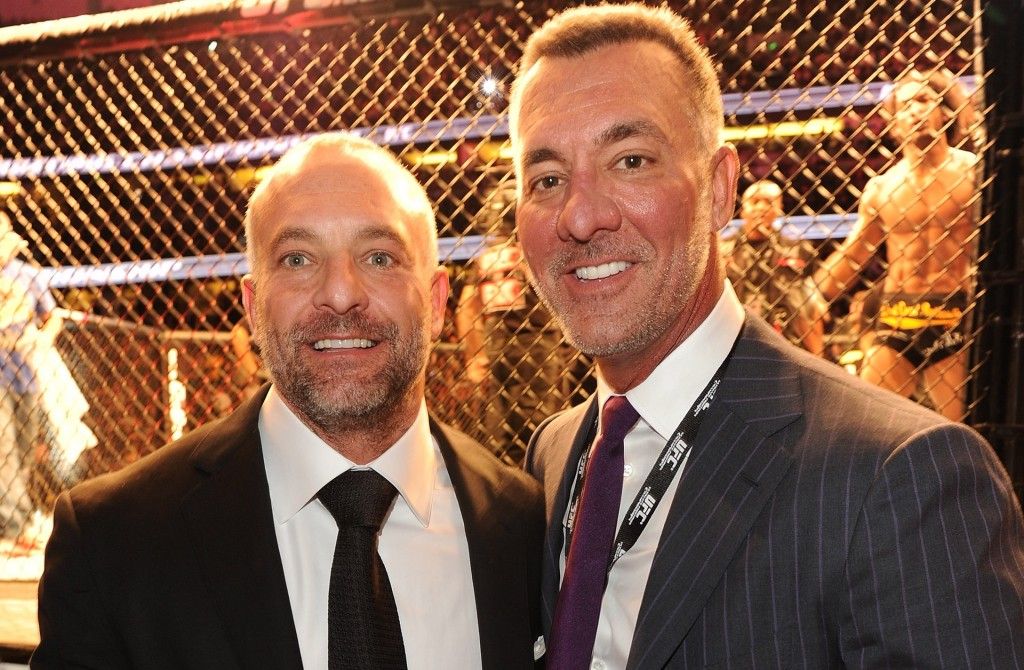

Share
30th December 2015
02:14pm GMT

 “When we bought the company in 2001, it was a business that was almost bankrupt,” Fertitta explained. “It was literally going out of business. But we saw an opportunity.”
Over the past decade and a half, the promotion has grown into one of the most profitable in all of sports but one element of the business side of the UFC in 2015 that was hotly debated was the issue of fighter pay, with a number of athletes complaining about being underpaid and a few such as Benson Henderson and Aljamain Sterling deciding to test the free agency market.
Fertitta explained that fighters are paid on merit and that the UFC's top-level competitors are on million-dollar contracts, with Conor McGregor cementing himself as the promotion's top earner in 2015.
“When we bought the company in 2001, it was a business that was almost bankrupt,” Fertitta explained. “It was literally going out of business. But we saw an opportunity.”
Over the past decade and a half, the promotion has grown into one of the most profitable in all of sports but one element of the business side of the UFC in 2015 that was hotly debated was the issue of fighter pay, with a number of athletes complaining about being underpaid and a few such as Benson Henderson and Aljamain Sterling deciding to test the free agency market.
Fertitta explained that fighters are paid on merit and that the UFC's top-level competitors are on million-dollar contracts, with Conor McGregor cementing himself as the promotion's top earner in 2015.
 “At the end of the day, it’s an absolute open market,” Fertitta said. “There are multiple bidders in the marketplace. In fact, our No. 1 competitor is Bellator, which is owned by Viacom, which have significantly more resources than we do even though we’re kind of the leading brand in the space.
"The fact of the matter is, our top athletes are making multi-millions of dollars. What is happening is, as the sport grows and compensation goes up along as revenue goes up, you’re starting to see that the guys and girls at the top are commanding a larger share of that pie.
"And I think you see that in just about every sport and every business – it’s the athletes that make a difference that people want to pay for, they’re commanding the big dollars."
https://www.youtube.com/watch?v=5leKNVSXsqw
Fertitta went on to reveal the three revenue streams that the UFC has built in recent years and how the revolutionary Fight Pass service fits into their plans.
"The exciting part of the platform that we’ve built is that we’ve been able to embrace really different tiers of revenue,” Fertitta said. “So we have our basic pay-per-view business – our premium championship fights sit on pay-per-view. That is our biggest source of revenue.
"Then we have our media rights, which is really similar to the rights that we sell to FOX for all of the programming we give them.
"And then we have embraced the over-the-top platforms, where we launched UFC Fight Pass, which is a subscription service – $9.99 a month where you can access the entire UFC library. And then we also put exclusive live UFC events from around the world on that format, as well as original programming. So we really have those three sources of revenue – three ways to monetise our content."
“At the end of the day, it’s an absolute open market,” Fertitta said. “There are multiple bidders in the marketplace. In fact, our No. 1 competitor is Bellator, which is owned by Viacom, which have significantly more resources than we do even though we’re kind of the leading brand in the space.
"The fact of the matter is, our top athletes are making multi-millions of dollars. What is happening is, as the sport grows and compensation goes up along as revenue goes up, you’re starting to see that the guys and girls at the top are commanding a larger share of that pie.
"And I think you see that in just about every sport and every business – it’s the athletes that make a difference that people want to pay for, they’re commanding the big dollars."
https://www.youtube.com/watch?v=5leKNVSXsqw
Fertitta went on to reveal the three revenue streams that the UFC has built in recent years and how the revolutionary Fight Pass service fits into their plans.
"The exciting part of the platform that we’ve built is that we’ve been able to embrace really different tiers of revenue,” Fertitta said. “So we have our basic pay-per-view business – our premium championship fights sit on pay-per-view. That is our biggest source of revenue.
"Then we have our media rights, which is really similar to the rights that we sell to FOX for all of the programming we give them.
"And then we have embraced the over-the-top platforms, where we launched UFC Fight Pass, which is a subscription service – $9.99 a month where you can access the entire UFC library. And then we also put exclusive live UFC events from around the world on that format, as well as original programming. So we really have those three sources of revenue – three ways to monetise our content."Explore more on these topics: